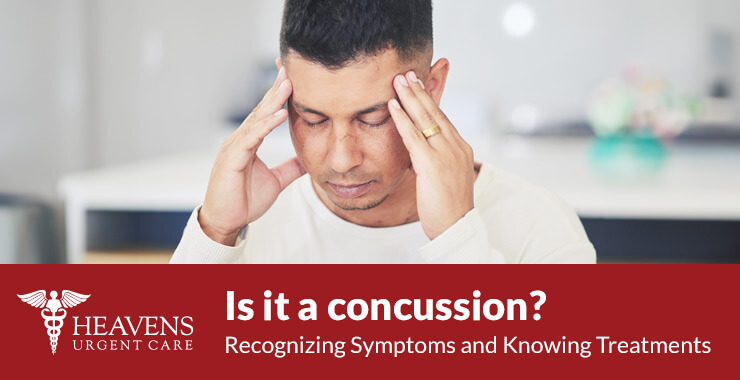The next time your seasonal allergies flare up, or you have a reaction to something you ate, you may not immediately think, “I’ll go to my local urgent care.”
That’s because most people don’t realize that an urgent care, like Heavens Urgent Care, have trained medical practitioners who are ready and willing to help you with a diagnosis and treatment plan.
While an emergency room can address allergic reactions that are not life-threatening, many times urgent care is the best option for less wait time and lower costs.

What causes allergic reactions?
There are many things that can cause allergic reactions. The most common are foods, lotions, medications, insect stings, and mold.
Whatever the cause may be, allergic reactions should never go ignored, no matter what the level of severity is. Instead, call or visit an urgent care center right away if you suspect an allergic reaction.
As a side note, it’s interesting to know that up to 90% of food allergies1 are caused by these eight foods:
- Eggs
- Cow’s milk
- Shellfish
- Fish
- Peanuts
- Wheat
- Tree nuts
- Soy
When to Visit Your Urgent Care
Allergic reactions can be frightening, which is why it’s important to immediately get to an urgent care center so that a doctor can examine and evaluate you.
Not sure if an allergic reaction is serious enough to warrant a visit to your urgent care?
The following is a list of signs that indicate a need to be seen:
- Apparent rash
- Itchy or swollen skin
- Irritation in the eyes, throat, nose, or ears
- Nasal congestion or sinus troubles
- Shortness of breath
- Fatigue or feelings of an anxiety attack
When these symptoms are present, don’t hesitate to get to an urgent care right away so that a medical provider can determine the root cause and start treatment.
Urgent care centers can determine what is causing the allergic reaction and come up with a realistic plan of treatment to reduce any swelling, pain, or redness. Most allergic reactions can be treated with a simple medication, but it is always best to consult with a physician.

Treating Allergies
- Decongestants
- Antihistamines
- Nasal corticosteroids
- Oral corticosteroids
- Corticosteroid creams
- Mast cell stabilizers2 like a disodium cromoglycate
- Immunotherapy
- Epinephrine for life-threating reactions
Are you experiencing an allergic reaction?
If you think that you are experiencing an allergic reaction, we can help. An urgent care office is a great place to be seen quickly and affordably. If you live in Arizona, we can see you via a virtual visit, so don’t wait to find relief from your allergies. Contact us here!







